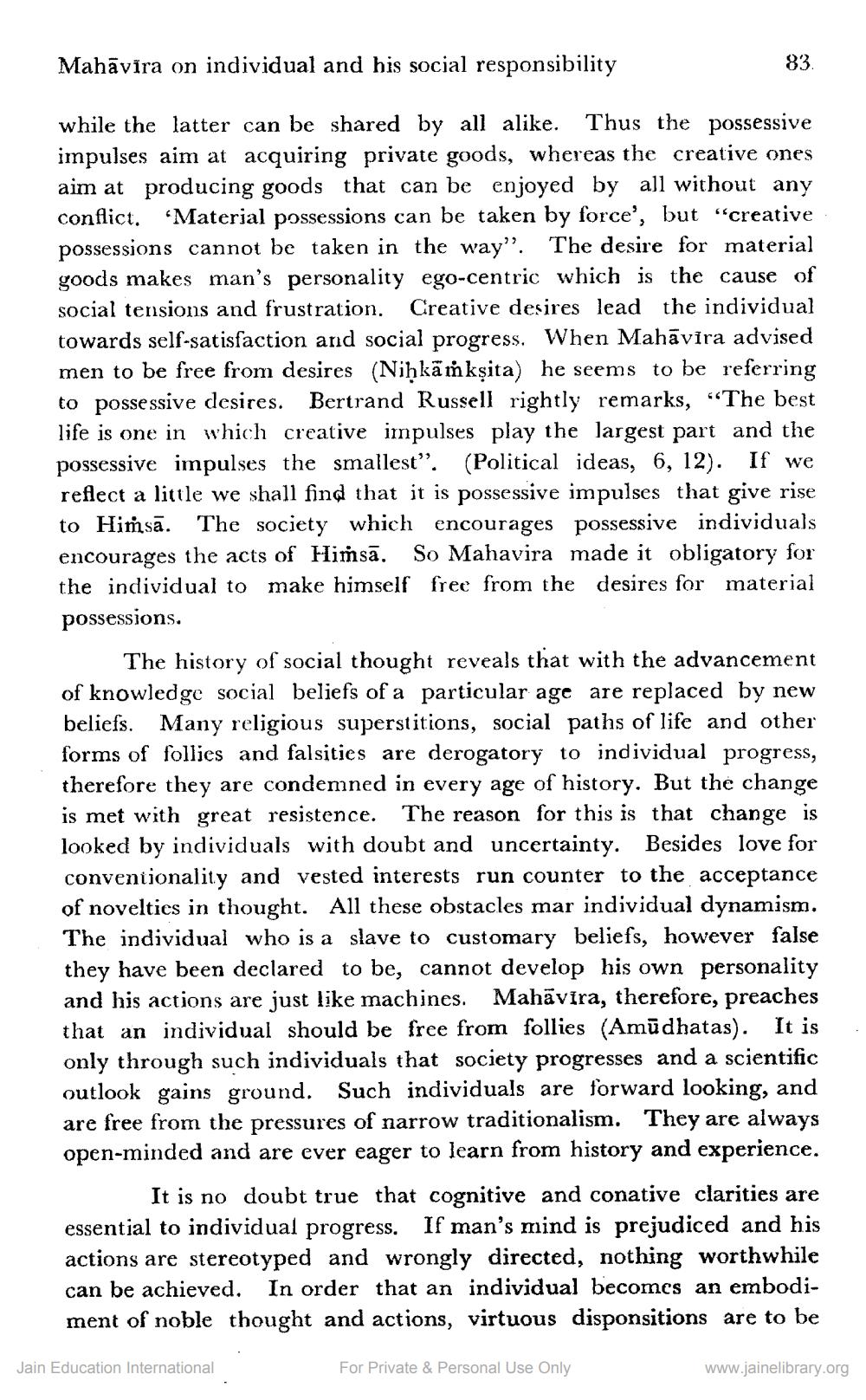________________
Mahāvira on individual and his social responsibility
83.
while the latter can be shared by all alike. Thus the possessive impulses aim at acquiring private goods, whereas the creative ones aim at producing goods that can be enjoyed by all without any conflict. “Material possessions can be taken by force', but “creative possessions cannot be taken in the way". The desire for material goods makes man's personality ego-centric which is the cause of social tensions and frustration. Creative desires lead the individual towards self-satisfaction and social progress. When Mahāvira advised men to be free from desires (Nihkā ikṣita) he seems to be referring to possessive desires. Bertrand Russell rightly remarks, “The best life is one in which creative impulses play the largest part and the possessive impulses the smallest". (Political ideas, 6, 12). If we reflect a little we shall find that it is possessive impulses that give rise to Himsā. The society which encourages possessive individuals encourages the acts of Hiṁsā. So Mahavira made it obligatory for the individual to make himself free from the desires for material possessions.
The history of social thought reveals that with the advancement of knowledge social beliefs of a particular age are replaced by new beliefs. Many religious superstitions, social paths of life and other forms of follies and falsities are derogatory to individual progress, therefore they are condemned in every age of history. But the change is met with great resistence. The reason for this is that change is looked by individuals with doubt and uncertainty. Besides love for conventionality and vested interests run counter to the acceptance of novelties in thought. All these obstacles mar individual dynamism. The individual who is a slave to customary beliefs, however false they have been declared to be, cannot develop his own personality and his actions are just like machines. Mahāvira, therefore, preaches that an individual should be free from follies (Amūdhatas). It is only through such individuals that society progresses and a scientific outlook gains ground. Such individuals are forward looking, and are free from the pressures of narrow traditionalism. They are always open-minded and are ever eager to learn from history and experience.
It is no doubt true that cognitive and conative clarities are essential to individual progress. If man's mind is prejudiced and his actions are stereotyped and wrongly directed, nothing worthwhile can be achieved. In order that an individual becomes an embodiment of noble thought and actions, virtuous disponsitions are to be
Jain Education International
For Private & Personal Use Only
www.jainelibrary.org




